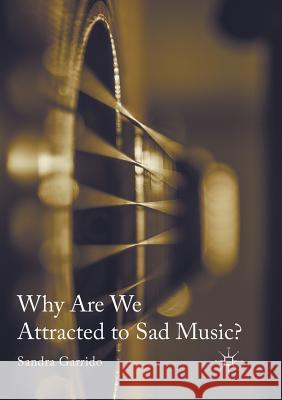Why Are We Attracted to Sad Music? » książka
topmenu
Why Are We Attracted to Sad Music?
ISBN-13: 9783319819365 / Angielski / Miękka / 2018 / 270 str.
Kategorie BISAC:
Wydawca:
Palgrave MacMillan
Język:
Angielski
ISBN-13:
9783319819365
Rok wydania:
2018
Wydanie:
Softcover Repri
Ilość stron:
270
Waga:
0.34 kg
Wymiary:
21.01 x 14.81 x 1.5
Oprawa:
Miękka
Wolumenów:
01
Dodatkowe informacje:
Wydanie ilustrowane











